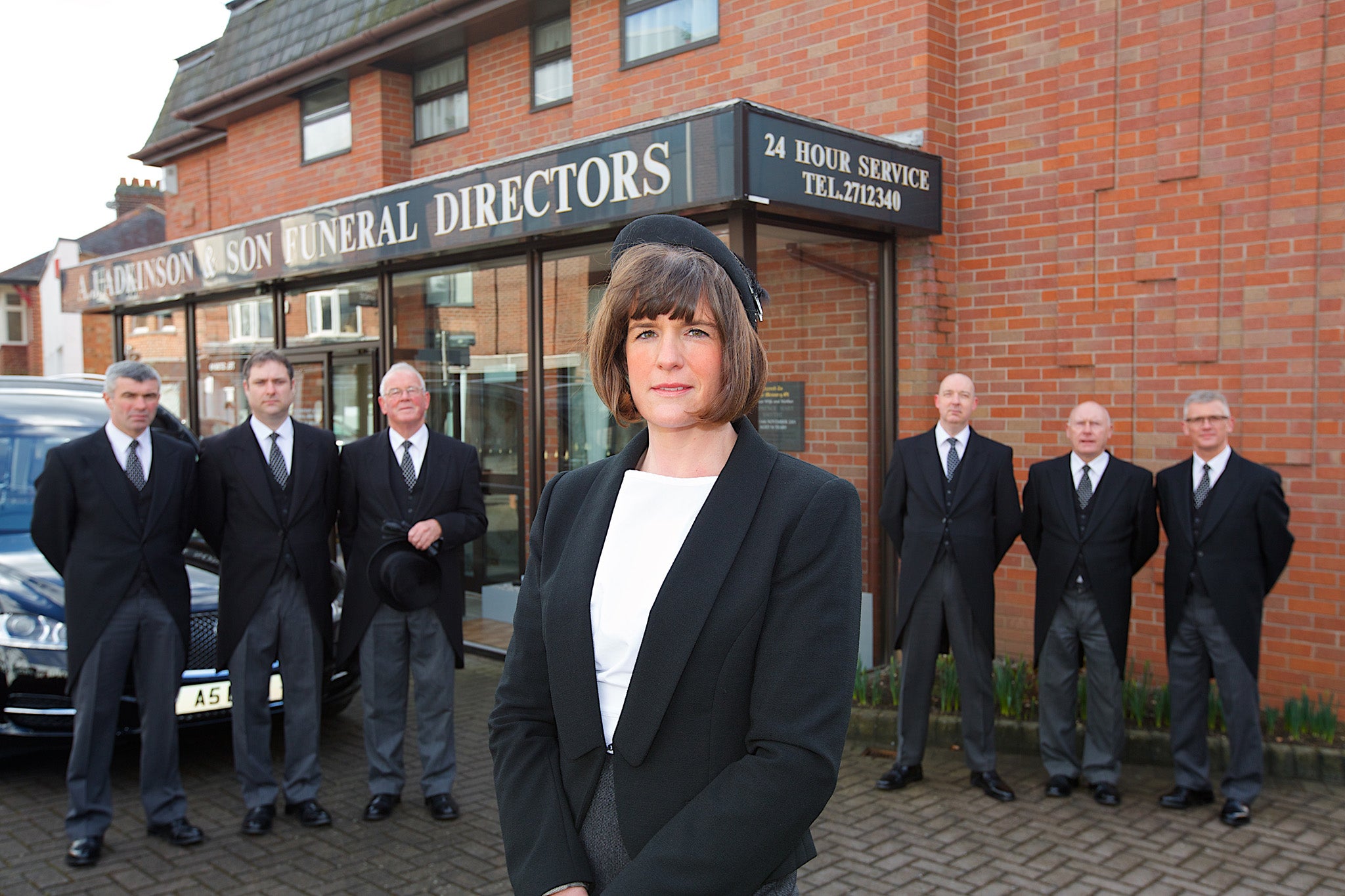What's it like to work as an undertaker?
The job can feel more like a vocation at times, as you become a "pillar of the community"

Your support helps us to tell the story
From reproductive rights to climate change to Big Tech, The Independent is on the ground when the story is developing. Whether it's investigating the financials of Elon Musk's pro-Trump PAC or producing our latest documentary, 'The A Word', which shines a light on the American women fighting for reproductive rights, we know how important it is to parse out the facts from the messaging.
At such a critical moment in US history, we need reporters on the ground. Your donation allows us to keep sending journalists to speak to both sides of the story.
The Independent is trusted by Americans across the entire political spectrum. And unlike many other quality news outlets, we choose not to lock Americans out of our reporting and analysis with paywalls. We believe quality journalism should be available to everyone, paid for by those who can afford it.
Your support makes all the difference.From organising Richard III's reburial in Leicester Cathedral to being woken up in the middle of the night to "attend a body", Jenny Gilbert's job can feel more like a vocation.
Working as a 24/7 undertaker for her family firm means she is on call 365 days a year, and will often have to answer her mobile at 3am if someone's family member has died. The 35-year-old sleeps with a glass of water by her bed and gargles before taking the call to make sure it doesn't sound as if she's just woken up.
Despite the demands of the job, Gilbert can still enjoy her free time. "Obviously you can't go out and have 10 glasses of wine, but you can go out for dinner," she says. But she has to be careful of her public image around Leicester - where her family business, AJ Adkinson & Son, is based - for fear of offending clients.
"You kind of have to be the responsible person all the time. It can be difficult to relax. If someone bumps into you and you're laughing, you never really know how they are going to react," she says.
When working, she tries not to offer grand gestures of sympathy to bereaved families for fear of sounding insincere. Judging how to handle people's reactions to the death of a loved one can be hard - and some are reluctant to have a female funeral director.
After working in architecture in the Middle East for seven years, Gilbert's decision to join the family firm means she deals with corpses on a daily basis. But growing up as a daughter of a funeral director meant death was such an everyday topic that she can't remember the first time she saw a dead body.
Although she is confronted by death the whole time, it doesn't make her think too much about her own mortality.
"If undertakers went home and mulled death over every night, we'd probably get ill. You just accept that it is part of life and take it in your stride."
Join our commenting forum
Join thought-provoking conversations, follow other Independent readers and see their replies
Comments